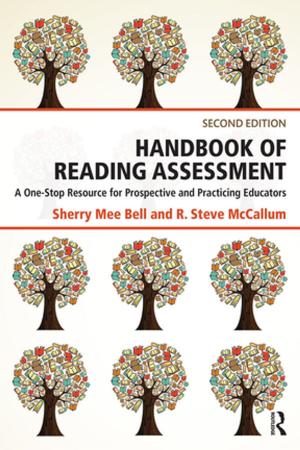Against Extinction
The Story of Conservation
Nonfiction, Science & Nature, Nature, Environment, Environmental Conservation & Protection| Author: | William (Bill) Adams | ISBN: | 9781136572180 |
| Publisher: | Taylor and Francis | Publication: | June 17, 2013 |
| Imprint: | Routledge | Language: | English |
| Author: | William (Bill) Adams |
| ISBN: | 9781136572180 |
| Publisher: | Taylor and Francis |
| Publication: | June 17, 2013 |
| Imprint: | Routledge |
| Language: | English |
'Conservation in the 21st century needs to be different and this book is a good indicator of why.' Bulletin of British Ecological Society Against Extinction tells the history of wildlife conservation from its roots in the 19th century, through the foundation of the Society for the Preservation of the Wild Fauna of the Empire in London in 1903 to the huge and diverse international movement of the present day. It vividly portrays conservation's legacy of big game hunting, the battles for the establishment of national parks, the global importance of species conservation and debates over the sustainable use of and trade in wildlife. Bill Adams addresses the big questions and ideas that have driven conservation for the last 100 years: How can the diversity of life be maintained as human demands on the Earth expand seemingly without limit? How can preservation be reconciled with human rights and the development needs of the poor? Is conservation something that can be imposed by a knowledgeable elite, or is it something that should emerge naturally from people's free choices? These have never been easy questions, and they are as important in the 21st century as at any time in the past. The author takes us on a lively historical journey in search of the answers.
'Conservation in the 21st century needs to be different and this book is a good indicator of why.' Bulletin of British Ecological Society Against Extinction tells the history of wildlife conservation from its roots in the 19th century, through the foundation of the Society for the Preservation of the Wild Fauna of the Empire in London in 1903 to the huge and diverse international movement of the present day. It vividly portrays conservation's legacy of big game hunting, the battles for the establishment of national parks, the global importance of species conservation and debates over the sustainable use of and trade in wildlife. Bill Adams addresses the big questions and ideas that have driven conservation for the last 100 years: How can the diversity of life be maintained as human demands on the Earth expand seemingly without limit? How can preservation be reconciled with human rights and the development needs of the poor? Is conservation something that can be imposed by a knowledgeable elite, or is it something that should emerge naturally from people's free choices? These have never been easy questions, and they are as important in the 21st century as at any time in the past. The author takes us on a lively historical journey in search of the answers.















